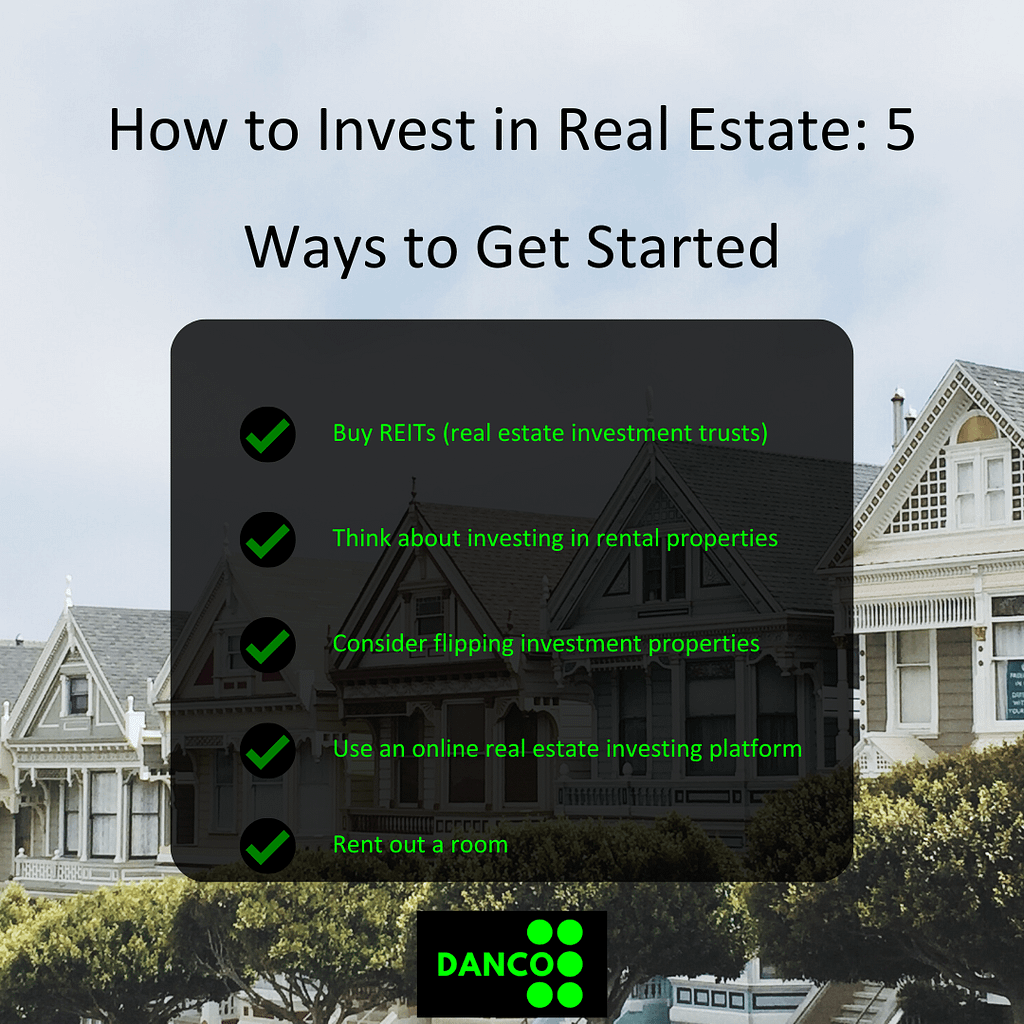How to Invest in Real Estate: 5 Ways to Get Started
Real estate investing can seem daunting, but it’s a powerful tool for building long-term wealth. This guide simplifies the process, offering 5 accessible entry points for beginners, even with little or no money down.

1. REITs: Invest in Bricks and Mortar Without the Bricks
- What it is: Real Estate Investment Trusts (REITs) are companies that own and operate income-generating properties like apartments, offices, and warehouses. You buy shares of a REIT, essentially owning a piece of their portfolio.
- Pros: Low initial investment, passive income (through dividends), easy diversification, publicly traded for high liquidity.
- Cons: Limited control over specific properties, potentially lower returns than direct ownership.
- Best for: Beginners seeking low-maintenance, diversified exposure to real estate.
2. Online Platforms: Join Forces with Other Investors
- What it is: Crowdfunding platforms connect developers with investors to finance real estate projects. You pool your money with others to invest in specific properties, earning returns through rental income or profit upon sale.
- Pros: Lower investment amounts, access to exclusive deals, potential for higher returns than REITs.
- Cons: Higher risk (projects can fail), illiquid investments (hard to sell quickly), limited control over projects.
- Best for: Risk-tolerant investors seeking higher potential returns and diversification beyond traditional stocks and bonds.
3. Rental Properties: Become a Landlord (with Careful Consideration)
- What it is: Purchase a property to rent out to tenants, generating income from monthly rent payments. This method offers potential for appreciation and long-term wealth building.
- Pros: Steady income stream, potential for property value appreciation, tax benefits.
- Cons: Requires significant upfront investment, ongoing management responsibilities (repairs, tenant issues), potential for vacancy periods.
- Best for: Individuals with some capital, DIY skills, and time to manage properties, comfortable assuming landlord responsibilities.
4. House Flipping: Fix, Flip, and Profit (But Do Your Research!)
- What it is: Purchase undervalued properties, renovate them to increase their value, and then sell them for a profit. This strategy requires market knowledge, construction skills, and the ability to move quickly.
- Pros: Potentially high profits in a short timeframe.
- Cons: High risk of overspending on renovations, difficulty in predicting market trends, requires significant time and effort.
- Best for: Experienced investors with strong market knowledge, construction skills, and risk tolerance.
5. House Hacking: Live Comfortably While Building Equity
- What it is: Rent out a portion of your primary residence (a room, basement, or in-law suite) to offset your housing costs and potentially generate additional income.
- Pros: Reduces your housing expenses, builds equity in your property, lower barrier to entry compared to other methods.
- Cons: Requires comfortable sharing your living space with others, potential screening and management responsibilities.
- Best for: Homeowners looking to reduce housing costs, comfortable with sharing their space, and responsible enough to manage tenants.
Remember:
- Start small and scale gradually: Don’t jump into large investments before understanding the risks and responsibilities.
- Do your research: Each method has its own nuances. Analyze local markets, property values, and potential returns before investing.
- Seek professional advice: Consider consulting with a financial advisor or real estate agent like Danco Limited for personalized guidance.
By understanding these options and carefully considering your financial goals and risk tolerance, you can take the first step towards building wealth through real estate investing. Good luck!








